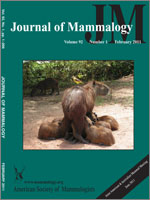One demand to which organisms must allocate energy for maintenance, growth, and reproduction is the immune system. Because the immune system is energetically costly, spleen size is expected to be condition-dependent. Parasites also can influence spleen size. Parasites draw resources from their host, with consequences for host body condition. Male American mink (Neovison vison) were examined for parasite prevalence, intensity, and richness to test several predictions: individuals in good condition have large spleens; heavily parasitized individuals have large spleens; and heavily parasitized individuals are in poorer condition than individuals with few parasites. Spleen mass was related positively to both body condition and parasite richness, but spleen mass was not associated with prevalence or intensity of individual parasites. Body condition was related weakly to the intensity of parasitism by the giant kidney worm and sinus worm, but otherwise parasite prevalence, intensity, or richness were not associated with body condition. These results are similar to those found in studies of birds, suggesting that comparable processes occur in mammals.
How to translate text using browser tools
16 February 2011
Spleen mass, body condition, and parasite load in male American mink (Neovison vison)
Albrecht I. Schulte-Hostedde,
Sarah C. Elsasser
ACCESS THE FULL ARTICLE

Journal of Mammalogy
Vol. 92 • No. 1
February 2011
Vol. 92 • No. 1
February 2011
body size
condition dependence
immune system
parasite species richness




